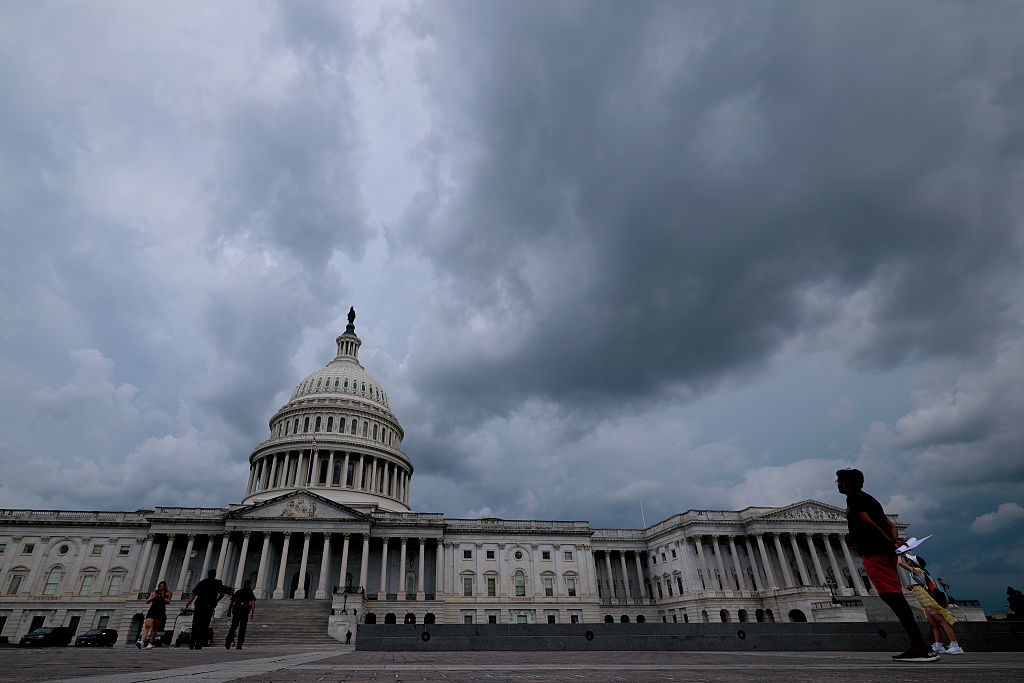This week, Republican lawmakers are attempting to pass a budget reconciliation bill that pays for unprecedented handouts to the wealthiest Americans on the backs of cuts to programs that benefit most people. Hidden in this budget package before the House is a national private school voucher program funded through tax breaks for the wealthy that threatens to dismantle our system of public schools.
[time-brightcove not-tgx=”true”]
According to Senator Ted Cruz, school vouchers are “the Civil Rights Issue of the 21st century.” The Texas Republican argues that vouchers are key to providing educational opportunities for young people. On the contrary, expanding vouchers and eliminating public education will actively harm young people—especially Black, Latino, and Indigenous students.
President Donald Trump’s so-called “Big, Beautiful Bill” currently includes a provision hidden in the tax code that offers an unprecedented 100% tax deduction for donations to third party organizations that hand out private school vouchers. The push to create a national private school voucher program is part of a long legacy of efforts to return to the separate and unequal educational landscape of the pre-civil rights era. Since the 1960s, white segregationists pushed for private school vouchers to avoid the desegregation mandates of Brown v. Board of Education and maintain a discriminatory and unequal system of education.
We urge lawmakers to drop the private school voucher program from the spending bill and keep it out of the final budget package. We also call on lawmakers to pass legislation that fully funds public schools, such as the Keep Our Pact Act. If the lawmakers fail to do so, it will set us on a dangerous course back toward a pre-civil rights era reality, defined by deliberate racial segregation and extreme disparities in school funding and resourcing.
This private school voucher plan to strip millions of children of their opportunity to access free public education directly mirrors Project 2025. The issue with such a policy is that private school vouchers subsidize wealthy families who can already pay for private school, while decimating public schools for everyone else by diverting resources away from public education.
Opponents of free and accessible education argue that voucher programs give families more choice. In actuality, school vouchers go toward private schools that choose which children to enroll, reject, or kick out. Public schools cannot choose which students to provide an education to. By law, they cannot discriminate against students based on their gender, race, disability, religion, English fluency, or LGBTQ identity.
But by design, private schools selectively allow admission to a small number of students. They also routinely deny students enrollment for other reasons like grades, behavioral record, and ability to pay. The latter of which is particularly significant because research suggests most families can’t afford the gap between the voucher and the rest of tuition.
Families who can’t access elite private schools, whether because they are discriminated against or can’t pay the difference in tuition, are often preyed upon by predatory schools that have popped up in states that passed vouchers in recent years. Horror stories abound of strip mall schools where no learning happens, where doors shutter mid-year, and where students don’t have teachers.
Meanwhile, public schools, which serve 90% of American students and 94% of students of color—are forced to do more with less. Students learn from outdated textbooks and old computers while overworked teachers are tasked with educating children who aren’t getting the resources they need. A choice between a private school that can reject or discriminate against your child and an under-resourced public school is hardly a choice at all.
The draconian cuts to public education caused by vouchers are even leading to a new wave of school closures, disproportionately impacting schools in Black and Brown neighborhoods, and forcing students to start over in unfamiliar environments, often traveling farther from home and adapting to new teachers and peers. When neighborhood schools close, Black and Brown communities lose community centers, polling places, access to services, and vital civic infrastructure, and in some cases lose their communities altogether.
Grassroots organizers in Black and Brown communities across the U.S. are fighting back to save their public schools from closure. They have packed board meetings, lead school walk-outs, and even held hunger strikes. They are on the frontlines of local fights against voucher programs and to support and keep their public schools.
The future of our public schools—schools that serve every child for free—are on the line. Instead of gutting our public schools, lawmakers should invest in them and restore the promise of equal education that the civil rights movement fought for.

